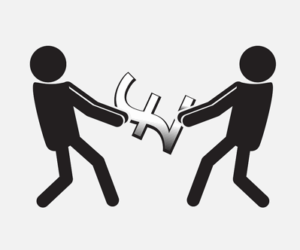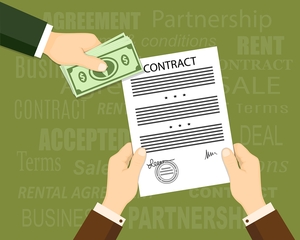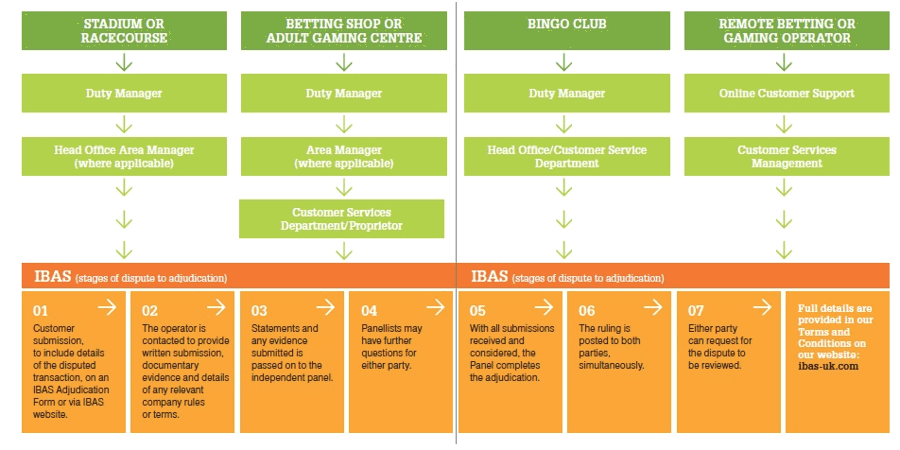 When most people place a bet, they don’t think about the legal ramifications of doing so. It doesn’t occur to some that they’re actually entering into a contract with the bookmaker that they placed the bet with, saying that they’ll give them money and receive money in exchange on the occasions that their bets turn out to be winning ones. Like most contracts, though, bets have terms and conditions attached to them.
When most people place a bet, they don’t think about the legal ramifications of doing so. It doesn’t occur to some that they’re actually entering into a contract with the bookmaker that they placed the bet with, saying that they’ll give them money and receive money in exchange on the occasions that their bets turn out to be winning ones. Like most contracts, though, bets have terms and conditions attached to them.
If the terms and conditions of a bet are broken by either party then the other party can do something about it. In the case of the bookie, if they think that you’ve done something that is against their terms and conditions, or is suspicious, then they can refuse to pay you your winnings, with the only thing that is important for them to do is for them to give you a reason why. You can complain to IBAS, but there’s no guarantee that they’ll side with you.
Entering Into A Contract
 Bookmakers have their own terms and conditions that punters sign up to when they create an account and place a bet. Most of the time, because people never read the small print, people don’t even realise that they’ve agreed to such terms and conditions, but they have and if they break them then bookies can respond by refusing to pay out on a bet. The best bookies only have terms and conditions in place to provide a framework and protect both parties.
Bookmakers have their own terms and conditions that punters sign up to when they create an account and place a bet. Most of the time, because people never read the small print, people don’t even realise that they’ve agreed to such terms and conditions, but they have and if they break them then bookies can respond by refusing to pay out on a bet. The best bookies only have terms and conditions in place to provide a framework and protect both parties.
Even so, it’s not exactly unheard of for bookmakers to turn to these terms and conditions and refuse to pay a punter their winnings. There are a number of things that bookies can turn to as a reason not to pay out on a winning bet, including if someone has more than one account with them. This is especially important if a free bet or offer that is only available to new customers has been used to place the bet in question.
Bookies can also refuse to pay out if they think that someone has been using a system that takes advantage of free bet offers in order to guarantee themselves a profit. Bookmakers also pay out on what is considered to be the ‘official result’, which is one that is published immediately after a match or race has taken place. If you bet on a horse which came second and the horse that came first is disqualified a week later, you don’t get paid.
Palpable Errors
 One thing that can happen that will result in a bookmaker refusing to pay out on your winning bet is when they have made what is termed a ‘palpable error’. Since 2008, the Independent Betting Adjudication Service has said the following about such errors:
One thing that can happen that will result in a bookmaker refusing to pay out on your winning bet is when they have made what is termed a ‘palpable error’. Since 2008, the Independent Betting Adjudication Service has said the following about such errors:
“It should be replaced with ‘error, inadvertent error, or obvious error’, qualified through a definition.”
In other words, if it’s clearly a mistake then bookies get away with it.
If you were to look at the odds of Liverpool to beat Everton with ten bookmakers and nine of them had the Reds as 1/10 favourites to gain a win over their neighbours, the one bookmaker who is offering odds of 10/1 has clearly made a palpable error. In a perfect world, the bookie will notice the error in time, void your bet and inform you of the mistake so that you’ve got time to place the bet at the correct odds.
We don’t live in a perfect world, however, so sometimes a bookmaker will only realise after the event has taken place and so will simply settle the bet at the correct odds. If they did end up paying you at the inflated odds then they can simply recover the winnings from your account or, if you’ve already withdrawn them, ask you to pay the money back. You can refuse to, but doing so would almost certainly result in a legal battle that you’d eventually lose.
Make Sure You Placed The Bet You Think You Placed
 There have been examples of punters up and down the country being annoyed at a bookmaker not paying out on a bet that they’ve placed, only to discover that they didn’t actually place the wager that they thought they did. One example of this can be found in international tournaments, which often encourage people to bet on the winner of the Golden Boot. Some mistakenly think that this is the top scorer award, but it isn’t.
There have been examples of punters up and down the country being annoyed at a bookmaker not paying out on a bet that they’ve placed, only to discover that they didn’t actually place the wager that they thought they did. One example of this can be found in international tournaments, which often encourage people to bet on the winner of the Golden Boot. Some mistakenly think that this is the top scorer award, but it isn’t.
In the 2012 European Championship, for example, six players all scored three goals and tied as the top goalscorer in the competition. People that had placed a bet on one of those players to win the Golden Boot flocked to their bookmakers of choice to claim their winnings, only to discover that the actual winner of the Golden Boot was Fernando Torres. This is because the Golden Boot was a specific award given out by UEFA.
According to UEFA’s rules, if several players scored the same number of goals in a tournament then assists would be taken into account in order to decide who had won the Golden Boot, hence it being awarded to the Spaniard. The people thought they were betting on the top goalscorer and that Dead Heat rules should apply to their bets, but they were wrong and missed out on any winnings.
A similar error occurred in 2012 when Sam Oldham’s grandmother placed a bet on him winning a medal during the London Olympics. He did just that, winning a medal alongside the rest of his gymnastics team, but Betfred refused to pay out the £500 winnings that Linda Aldred thought she was owed because the bookmaker believed that the bet was on him winning an individual medal, not a team one.
Whether you’re placing your bet online or doing so in person with a bookmaker, the key things to do are to be specific about what you’re betting on and to clarify anything if it seems unclear. Oldham’s grandma might not have been able to persuade Betfred to pay out on a team medal, but at least she’d have known that she wasn’t owed any money when her grandson only won as part of a team had she clarified her own wager.
What Can You Do If The Don’t Pay?
 Licensed bookmakers cannot be taken to court for not paying out on a winning bet, but punters do still have some recourse if they think they’re being stiffed. The first thing that you need to do is to contact the bookmaker in question directly, even though they’re unlikely to change their opinion on the matter. You will not be able to take your complaint any further unless you have done so, as strange as that may seem.
Licensed bookmakers cannot be taken to court for not paying out on a winning bet, but punters do still have some recourse if they think they’re being stiffed. The first thing that you need to do is to contact the bookmaker in question directly, even though they’re unlikely to change their opinion on the matter. You will not be able to take your complaint any further unless you have done so, as strange as that may seem.
That’s because the Independent Betting Adjudication Service will first ask you whether or not you have spoken to your bookmaker about the matter. If you have not then they will refuse to deal with your case. You need to exhaust all possible lines of enquiry with them before you turn to IBAS, who will then look into your case and see if they can do anything to help you in your claim against the bookie you’re dealing with.
In case where fraud is suspected then IBAS will investigate and, if it’s found to be true, side with the bookmaker. If the bookie thinks that your stake was from ill-gotten means then they will not even give you that back, which IBAS will also agree with them over. You will know whether you’ve committed fraud or got your stake from illegal means, so if you have you would be wise not to make too big of a fuss.

As far as customers are concerned, any ruling from IBAS is not legally binding and they are therefore able to at least try to take the bookmaker to court to claim their winnings. For the bookies, on the other hand, the decision is legally binding as long as it is for £10,000 or less. Anything over £10,000 and the bookmaker can ask that the case is heard by a court and try not to pay out the winnings if they can avoid it.
Most of the time, punters will know deep down whether or not they have a case. If you’re in a situation where you think you should have been paid out but haven’t been, make sure that you look into everything about the bet before you look to go down the line of speaking to IBAS. Did you actually bet on what you thought you’d bet on? Was it clear? Is everything about your bet above board? Ask yourselves those questions and you might be able to find out the answer without needing to take things further.
